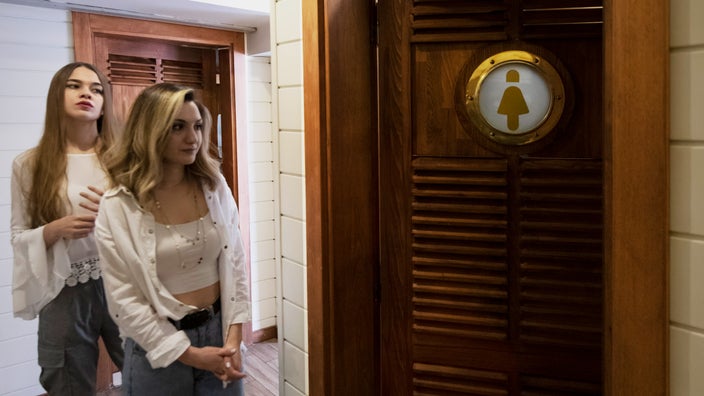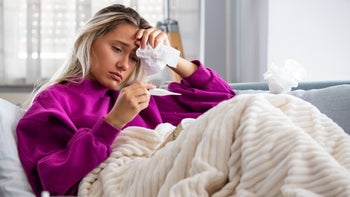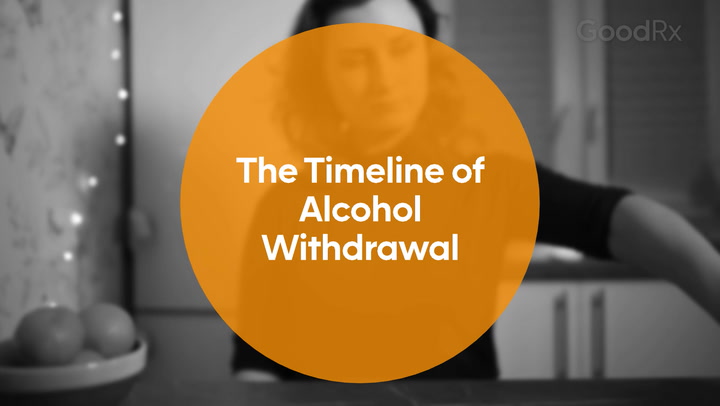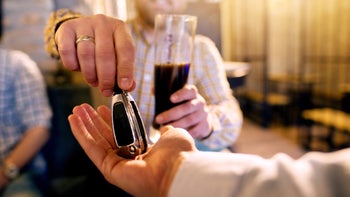
Why Alcohol Makes You Pee
Key takeaways:
Alcohol makes you pee more by blocking antidiuretic hormone (ADH). ADH is the hormone that keeps you from peeing too much.
Only alcoholic beverages that contain at least 13% alcohol can block ADH.
Limiting your alcohol intake will prevent dehydration and support your health.

Have you noticed that you need to pee more often when you’re drinking alcohol? It’s not just you — the proof is that line for the bathroom at the bar. Alcohol has a diuretic effect, which means it makes your body lose water. This can lead to dehydration and worsen hangover symptoms like dehydration headaches.
But why does alcohol make you pee? The answer involves your brain, kidneys, and the effect of alcohol on both.
What is dehydration?
Dehydration is a condition that develops when your body loses water or water and electrolytes. Dehydration affects every organ in the body, so the body has ways to make sure it hangs on to the water it needs. The brain and kidney make hormones that tell the kidney when to conserve water.
Search and compare options
Certain medical conditions and medications can interrupt or overwhelm how this works. And this leads to dehydration. Examples of things that can lead to dehydration include:
Fever
Diuretic medications like hydrochlorothiazide and furosemide
Adrenal insufficiency
Excessive sweating from intense exercise
How does alcohol make you pee?
Alcohol makes you pee more. Alcohol blocks the release of the hormone vasopressin, or antidiuretic hormone (ADH). A diuretic is anything that makes you pee more. So antidiuretic hormone literally means a hormone that keeps you from peeing.
The brain releases ADH when it’s time for the kidneys to hold onto water. When alcohol blocks ADH, the kidneys don’t get this important signal. They just keep sending fluids out through your bladder unchecked.
This causes you to lose water faster than you’re taking it in.
Not all types of alcohol make you pee. Studies show that alcoholic beverages that are at least 26 proof (13% alcohol) are strong enough to block ADH. Distilled spirits (like vodka, whisky, and gin) and most wines have at least 13% alcohol.
Read more like this
Explore these related articles, suggested for readers like you.
But the data is less clear for weaker alcoholic beverages like beer. Alcoholic beverages that contain less than 5% alcohol probably don’t block ADH.
Does alcohol dehydrate you?
Alcohol can cause dehydration because the diuretic effect of alcohol can add up quickly.
Studies show that for each standard drink you take in, you can pee out almost a full cup. For reference, the average adult pees about 8 cups of urine a day. So 2 to 3 drinks in a night can make you pee almost 50% more than you usually would. This can lead to dehydration if you don’t drink enough to replace that loss.
Drinking alcohol can also cause a hangover. Dehydration doesn’t cause a hangover, but hangovers can lead to dehydration. Hangover symptoms include sweating and vomiting, which increase the risk of developing dehydration.
What are the symptoms of alcohol dehydration?
Symptoms of dehydration from alcohol include:
Increased thirst
Muscle weakness
Dry mouth
Dizziness
Lightheadedness
Slowed reaction time
Trouble paying attention
Some of these symptoms overlap with the signs of intoxication. So it can be easy to miss that you’re starting to get dehydrated.
How can you stay hydrated while drinking alcohol?
Some things you can do to stay hydrated while drinking alcohol include:
Avoiding binge drinking
Taking in enough fluids each day to stay hydrated
The benefits of only drinking alcohol in moderation go beyond avoiding dehydration. Over time, avoiding alcohol can lower your risk of liver disease and improve your sleep and mood — to name just a few.
In general, older people are more likely to get dehydrated. That’s because as you get older, your kidneys aren’t as good at holding onto water. Older people have a lower thirst drive, meaning they don’t feel thirst as strongly, which normally signals you to drink. And alcohol makes you feel worse as you get older.
Together, these things increase your risk of dehydration from alcohol. So take extra care to make sure you’re getting enough fluid each day, especially on days when you drink alcohol.
The bottom line
Higher-proof alcohols can make you pee more. They block antidiuretic hormone (ADH), which controls how much you pee each day. Increased urination can lead to dehydration. Moderating your alcohol intake helps prevent dehydration and supports your overall health.
Why trust our experts?


References
Hobson, R. M., et al. (2010). Hydration status and the diuretic action of a small dose of alcohol. Alcohol and Alcoholism.
Irwin, C., et al. (2013). The effects of dehydration, moderate alcohol consumption, and rehydration on cognitive functions. Alcohol.
Lavizzo-Mourey, R. J. (1987). Dehydration in the elderly: A short review. Journal of the National Medical Association.
MedlinePlus. (2021). Urine 24-hour volume.
Polhuis, K. C. M. M., et al. (2017). The diuretic action of weak and strong alcoholic beverages in elderly men: A randomized diet-controlled crossover trial. Nutrients.
Swift, R., et al. (1998). Alcohol hangover. Alcohol Health and Research World.





























